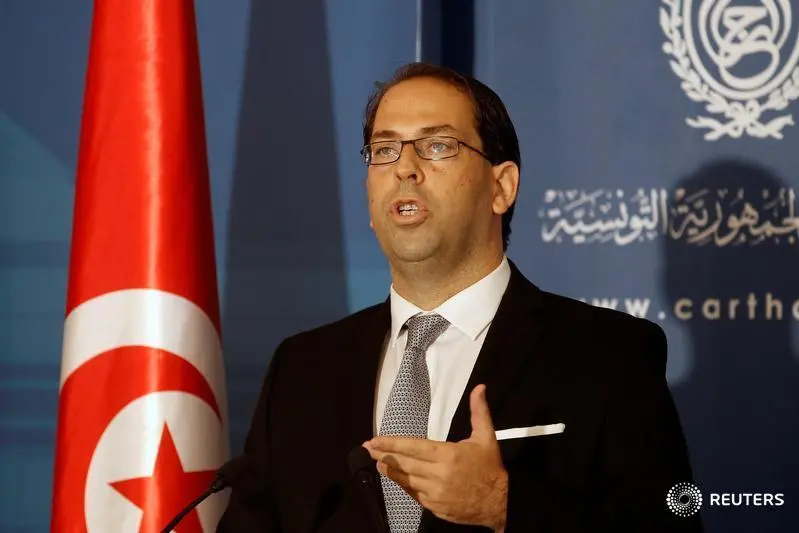PHOTO
TUNIS, Nov 21 (Reuters) - Tunisia will continue with a package of painful economic policies, Prime Minister Youssef Chahed said on Tuesday, despite resistance from labour unions and business associations to changes that will raise taxes and put thousands out of work.
The North African country is under pressure from the International Monetary Fund to speed up policy changes and help its economy recover from militant attacks in 2015 that hurt its vital tourism industry.
Tunisia plans to raise value-added and other taxes and lay off about 10,000 government workers as part of the 2018 budget to cut its budget deficit.
The government has also proposed a 1 percent social security tax on employees and companies. A federation of company owners, UTICA, has rejected that proposal and is threatening to shut down companies.
"We will seek consensus with all, but we go ahead with reforms needed to revive the economy and will not retreat," Chahed told parliament at the start of the budget debate.
Chahed also wants to freeze public-sector hiring, but the powerful union UGTT said it will not accept that, because branches such as education and health needed recruitments.
"Beware the anger of the Tunisian UGTT if the situation continues and if the rest of the parties refuse to share sacrifice," UGTT head Nourredine Taboubi said.
Tunisia has been praised for its democratic progress after a 2011 uprising that toppled President Zine El Abidine Ben Ali. But successive governments have failed to make the changes needed to trim deficits and create growth.
Under the 2018 budget, the deficit will fall to 4.9 percent of gross domestic product in 2018, from about 6 percent expected in 2017. Tunisia hopes to raise GDP to about 3 percent next year against 2.3 percent this year.
(Reporting By Tarek Amara; Editing by Ulf Laessing) ((tarek.amara@thomsonreuters.com;))
The North African country is under pressure from the International Monetary Fund to speed up policy changes and help its economy recover from militant attacks in 2015 that hurt its vital tourism industry.
Tunisia plans to raise value-added and other taxes and lay off about 10,000 government workers as part of the 2018 budget to cut its budget deficit.
The government has also proposed a 1 percent social security tax on employees and companies. A federation of company owners, UTICA, has rejected that proposal and is threatening to shut down companies.
"We will seek consensus with all, but we go ahead with reforms needed to revive the economy and will not retreat," Chahed told parliament at the start of the budget debate.
Chahed also wants to freeze public-sector hiring, but the powerful union UGTT said it will not accept that, because branches such as education and health needed recruitments.
"Beware the anger of the Tunisian UGTT if the situation continues and if the rest of the parties refuse to share sacrifice," UGTT head Nourredine Taboubi said.
Tunisia has been praised for its democratic progress after a 2011 uprising that toppled President Zine El Abidine Ben Ali. But successive governments have failed to make the changes needed to trim deficits and create growth.
Under the 2018 budget, the deficit will fall to 4.9 percent of gross domestic product in 2018, from about 6 percent expected in 2017. Tunisia hopes to raise GDP to about 3 percent next year against 2.3 percent this year.
(Reporting By Tarek Amara; Editing by Ulf Laessing) ((tarek.amara@thomsonreuters.com;))





















